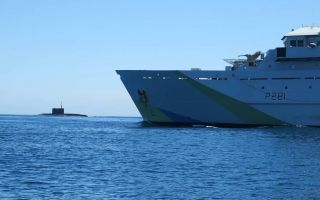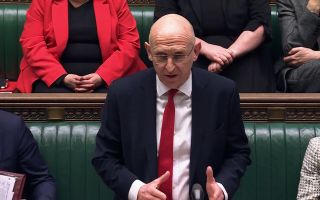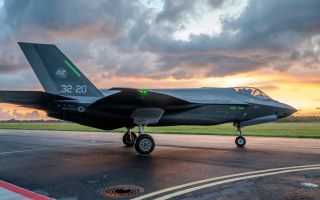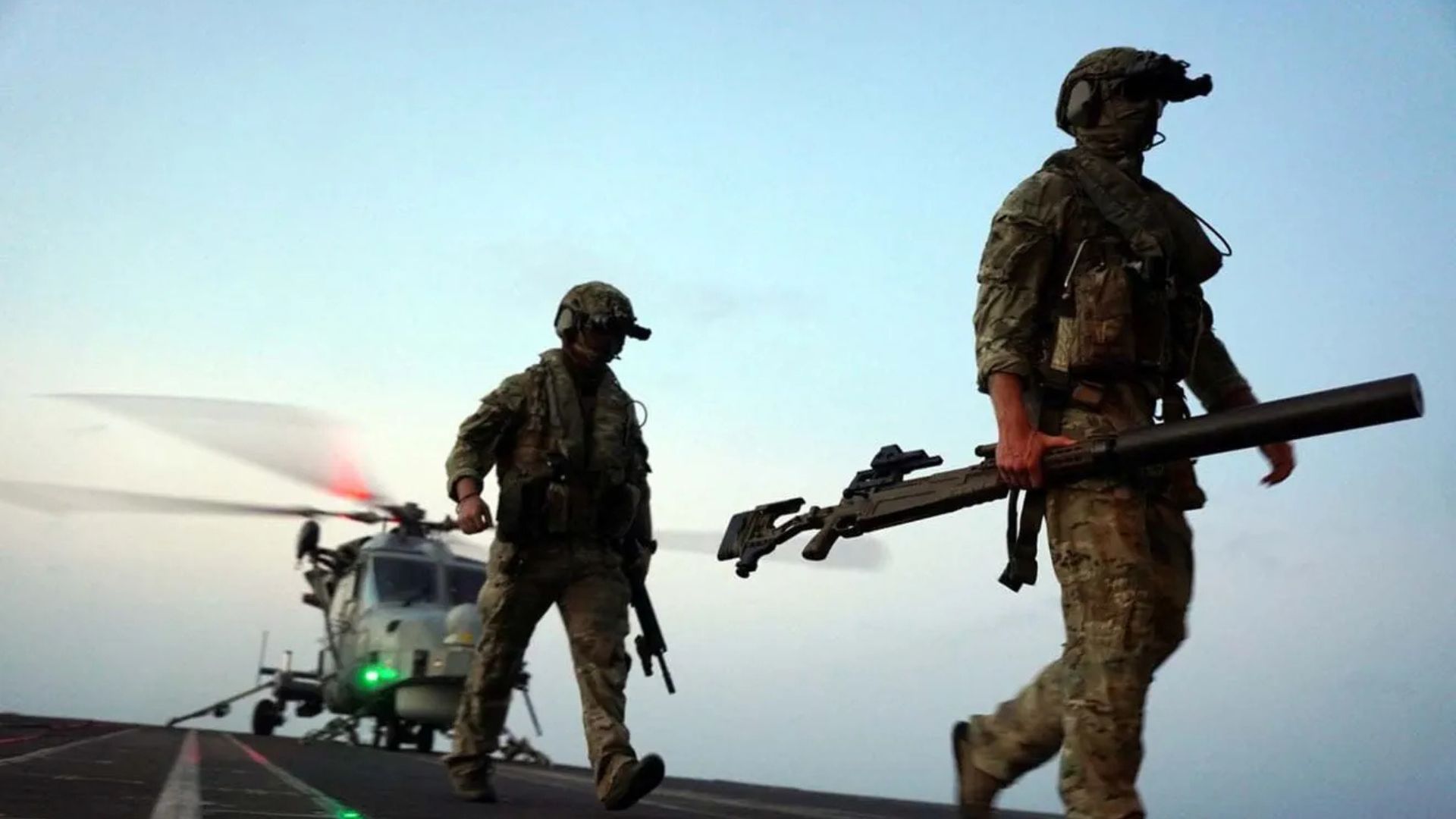
Single shot from Royal Marine sniper deals £35m blow to the narcotics trade

At dawn in the Gulf of Oman, a drug-laden skiff racing across the water at more than 40 knots was stopped dead in its tracks by a single, precision shot.
From the door of a Wildcat helicopter, a Royal Marine sniper fired one non-lethal round straight into the boat's engine and, in an instant, removed £35m of illegal narcotics from circulation.
Praising the operation, Armed Forces Minister Al Carns said: "Halting a boat travelling at 40 knots with a single non-lethal shot from a Royal Marines sniper is remarkable, and a real testament to the skill and training of our personnel.
"This operation highlights the unique role our Royal Navy contributes, working to disrupt criminal operations around the world, keeping us secure at home and strong abroad."
This is the first time snipers have been called upon to use non-lethal force to disable a suspicious boat in the Gulf region, where slow-moving dhows are typically used to hide illicit cargoes.
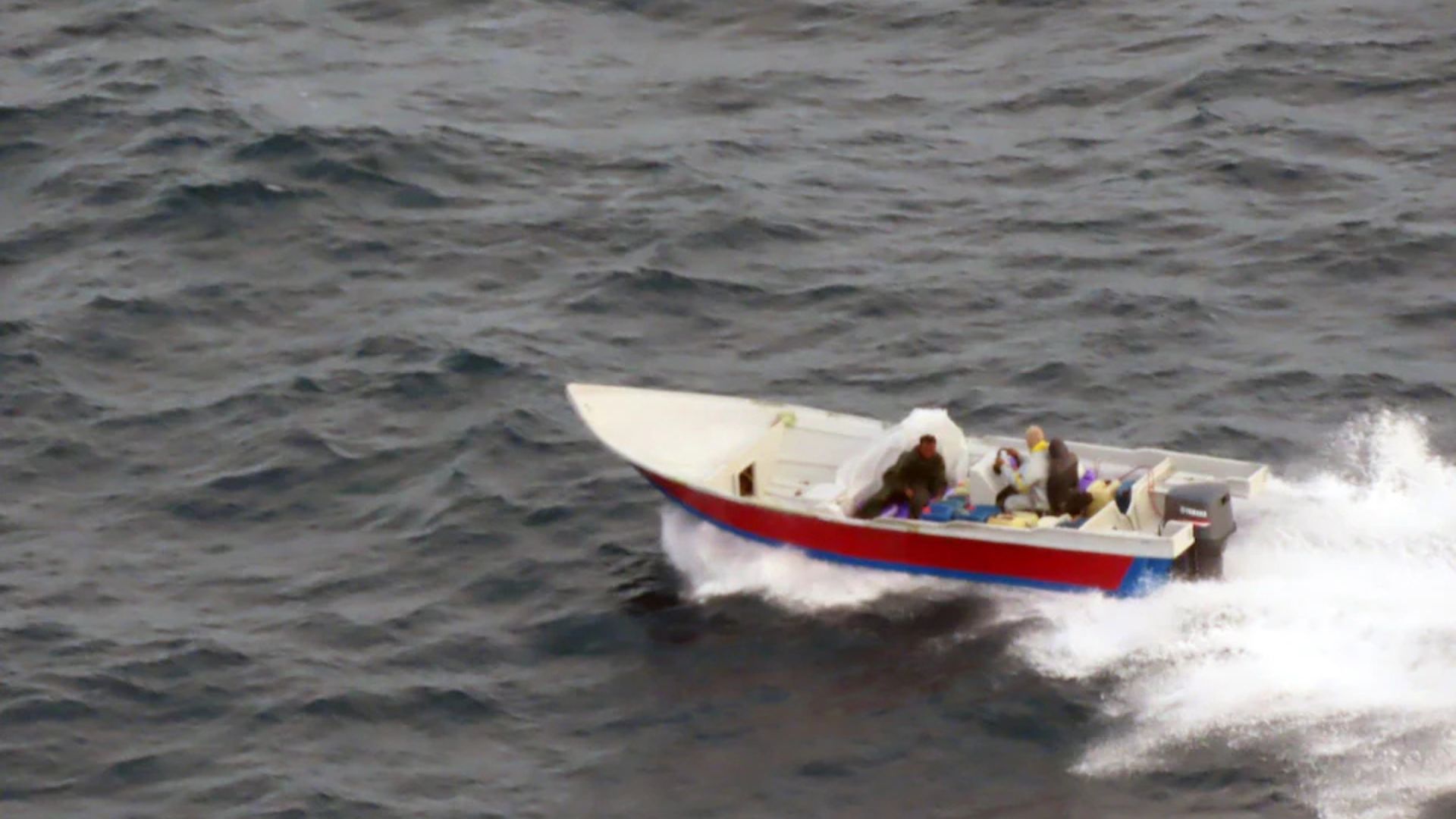
Operation at dawn
The operation began when HMS Lancaster launched her Wildcat from 815 Naval Air Squadron on a dawn patrol over the Gulf of Oman. Crew detected three skiffs travelling at speed, covertly shadowed them, and relayed real-time intelligence to the warship.
HMS Lancaster then deployed a Peregrine mini helicopter to continue undetected surveillance, streaming live video to the ship's operations room.
The Wildcat returned to refuel and embarked a Maritime Sniper Team (MST) from 42 Commando – The Royal Marines' boarding specialists, who closed in for the interception.
When the helicopter appeared over the skiffs, their crews immediately increased speed to more than 40 knots and began hurling their cargo into the water to reduce weight.
Two of the skiffs were eventually abandoned, but the third persisted in trying to get away.
At this point, the Marines targeted the outboard engine, neutralising it with a single round. The discarded packages of drugs were then recovered.
More than 1½ tonnes of drugs were recovered in all – heroin, crystal methamphetamine and hashish with an estimated UK street value in excess of £35m.
The operation highlights HMS Lancaster's capability to deter illicit activities and disrupt the narcotics trade.
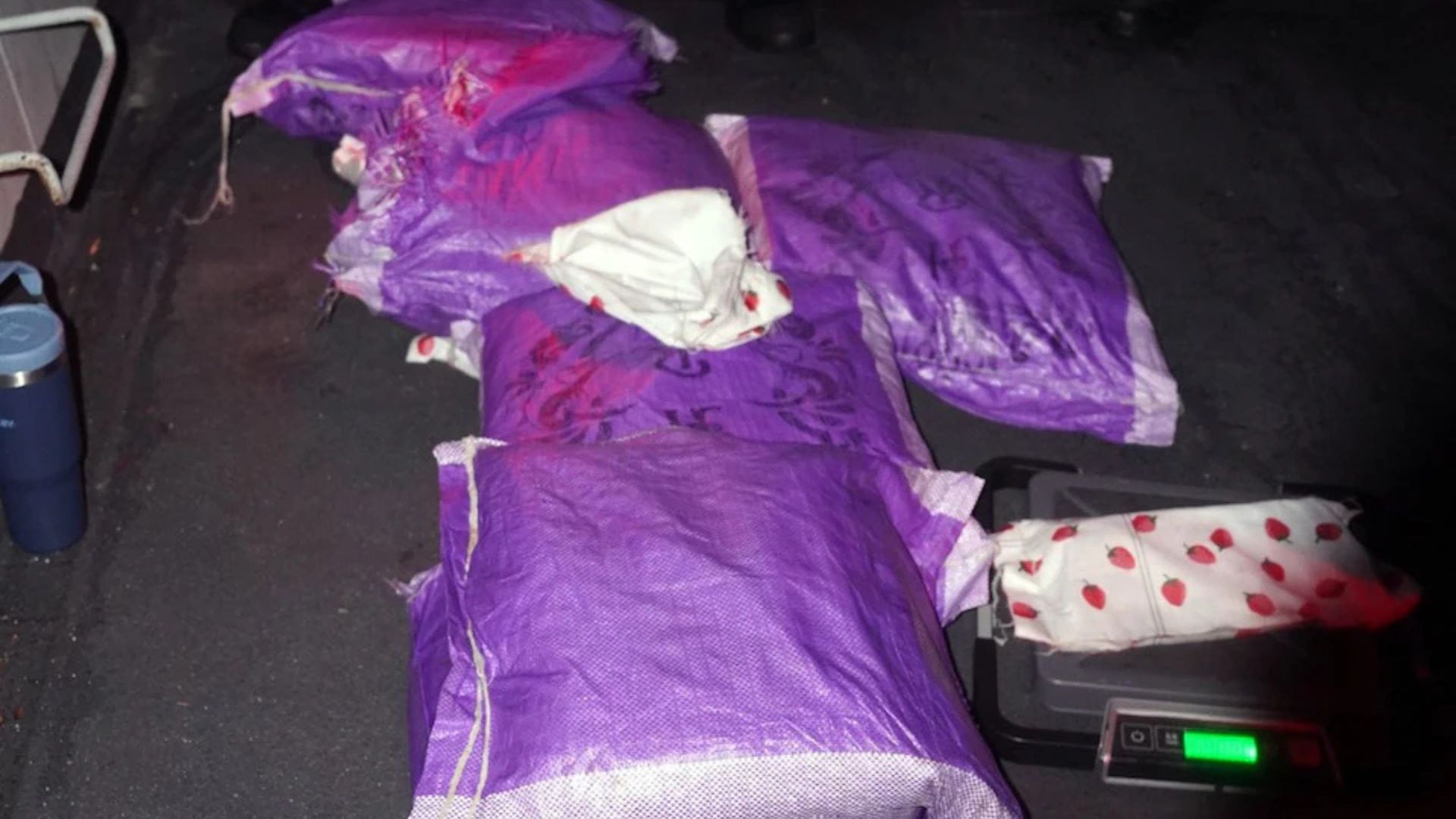
Commander Sam Stephens, Commanding Officer of HMS Lancaster, said: "This operation saw Lancaster's crewed and uncrewed aircraft working hand-in-glove under the direction of the ship's operations room.
"The outcome was a highly successful bust, removing large quantities of narcotics from the streets and preventing their profits from fuelling extremism."
Wildcat pilot Lieutenant Guy Warry added: "Being the Wildcat pilot carrying out a live weapons firing on drug-running skiffs whilst flying backwards to provide a stable platform for the snipers was definitely a career highlight.
"This interdiction is a true testament to the high levels of training that both the flight, MST and ship have achieved prior to the bust."
It's the first bust HMS Lancaster has scored since she intercepted a £30m shipment of illegal narcotics in late May.
HMS Lancaster will shortly reach the end of her life and will return home to be decommissioned later this year.
With no warships currently available to replace her, it will mark the end of any significant Royal Navy presence in the Gulf region.


